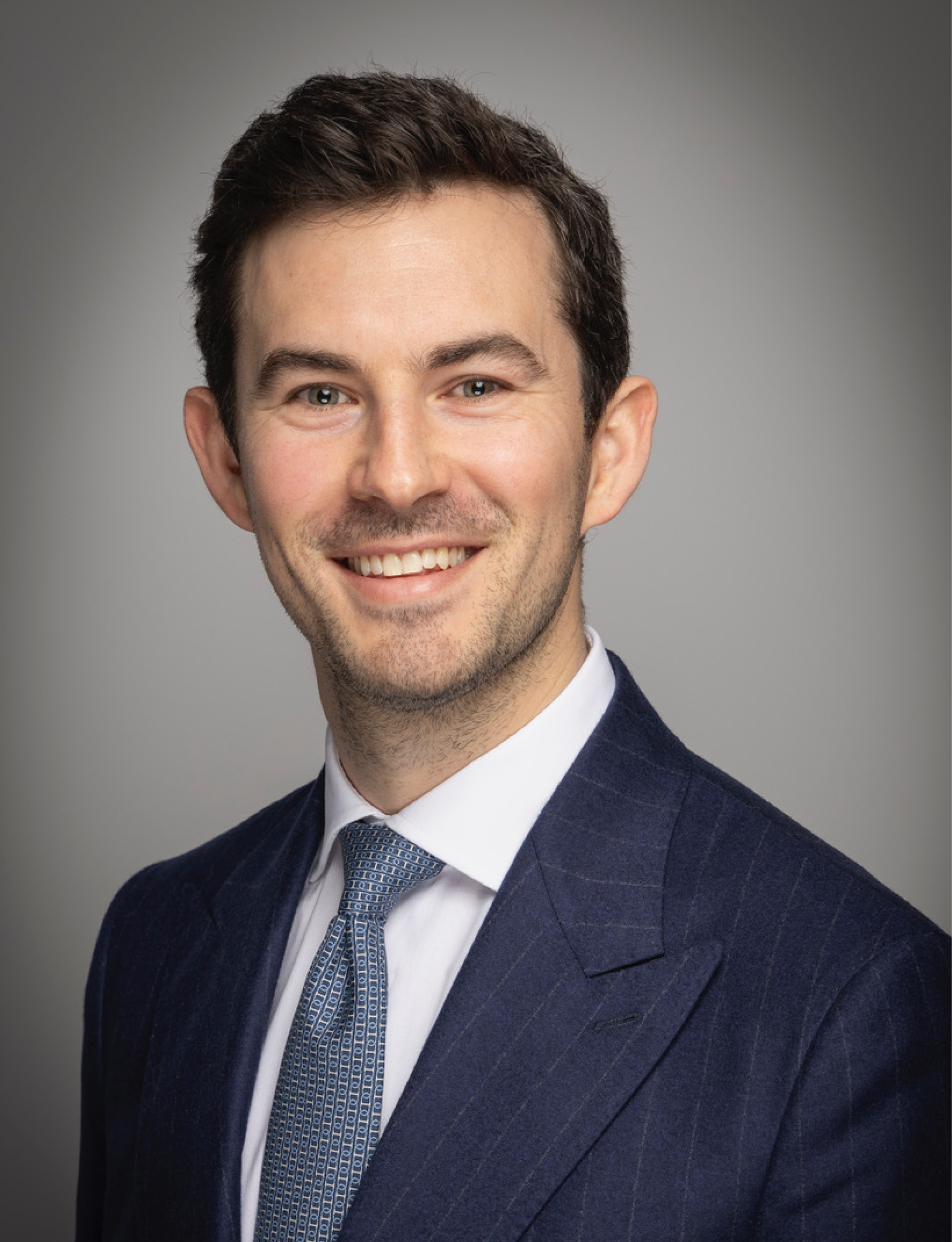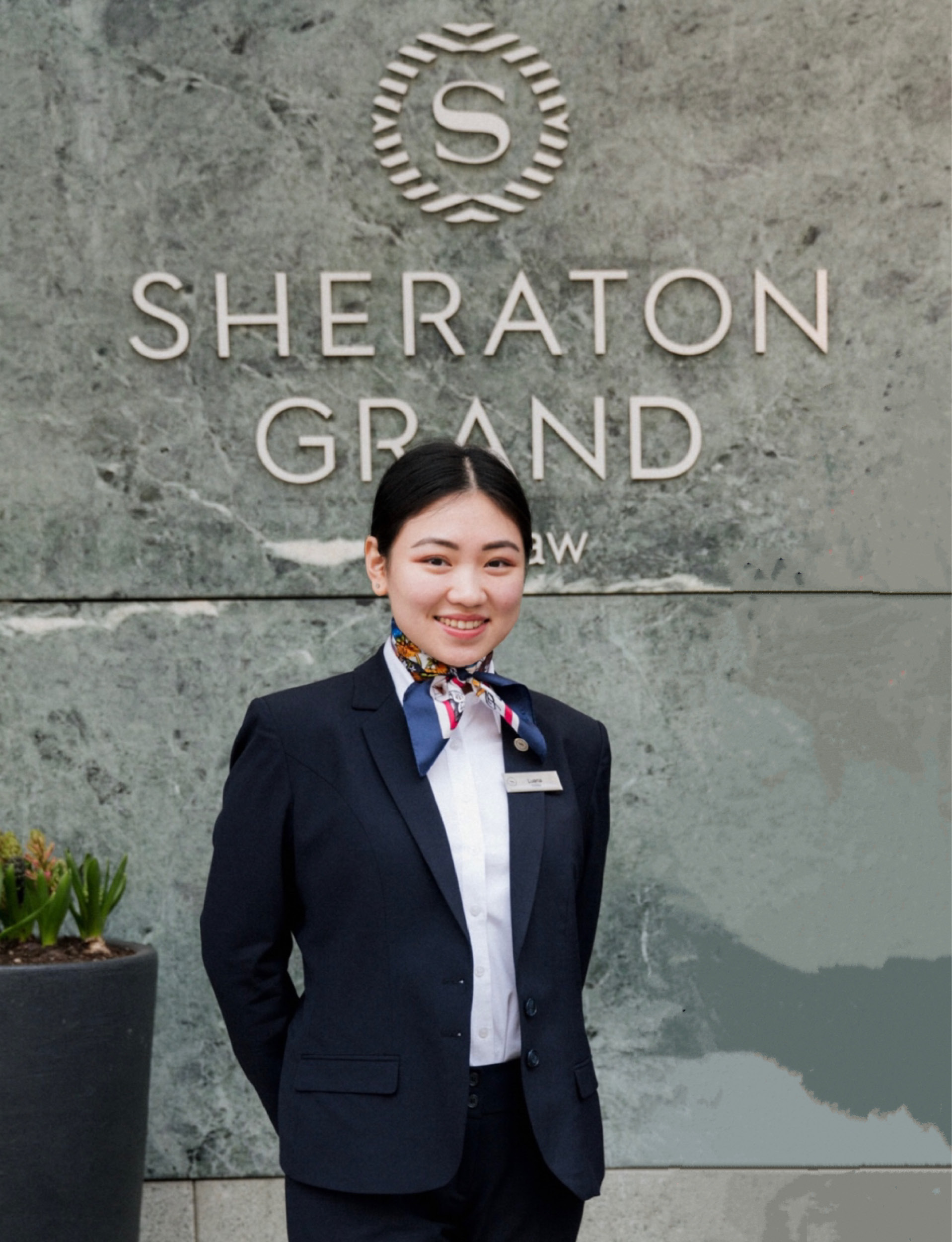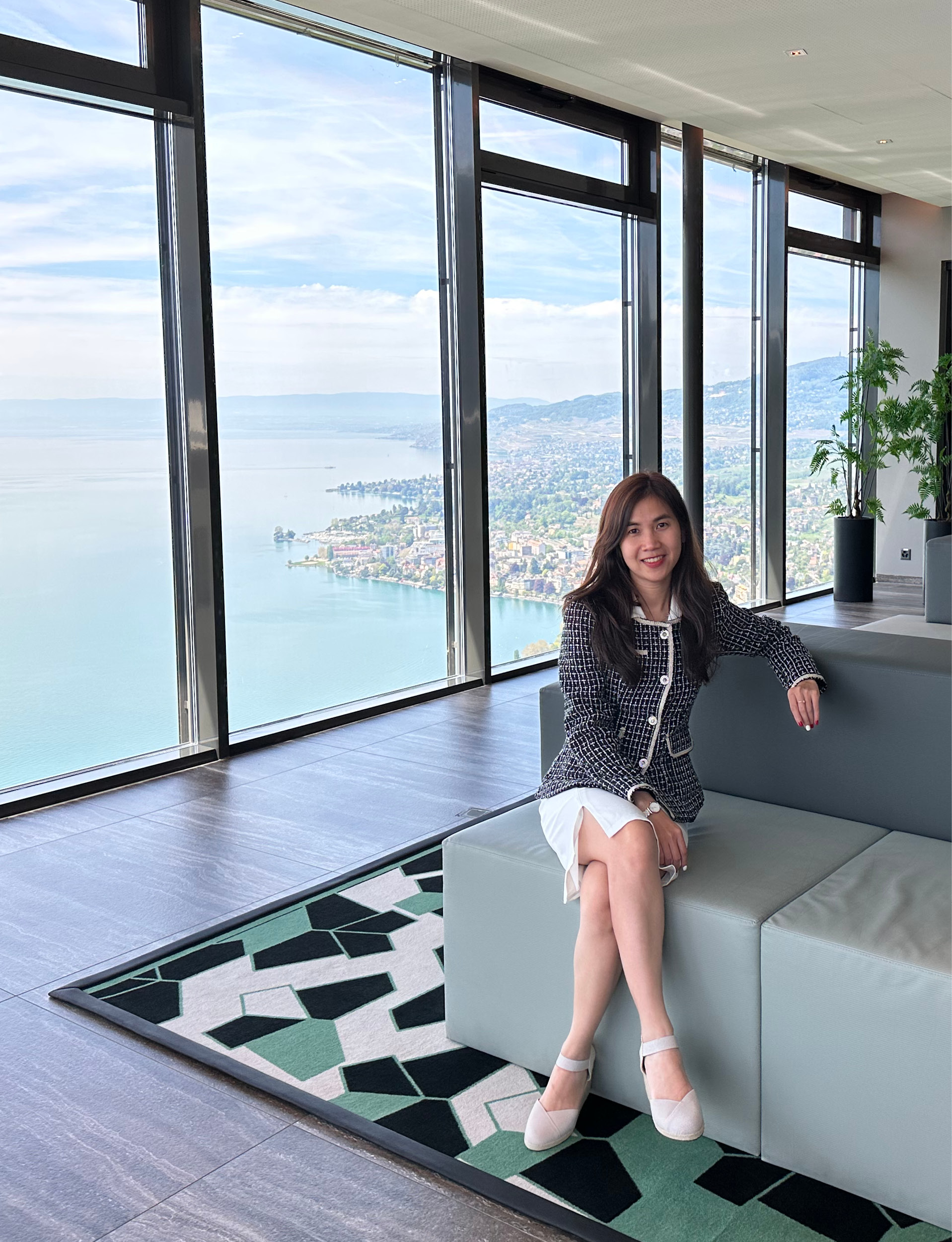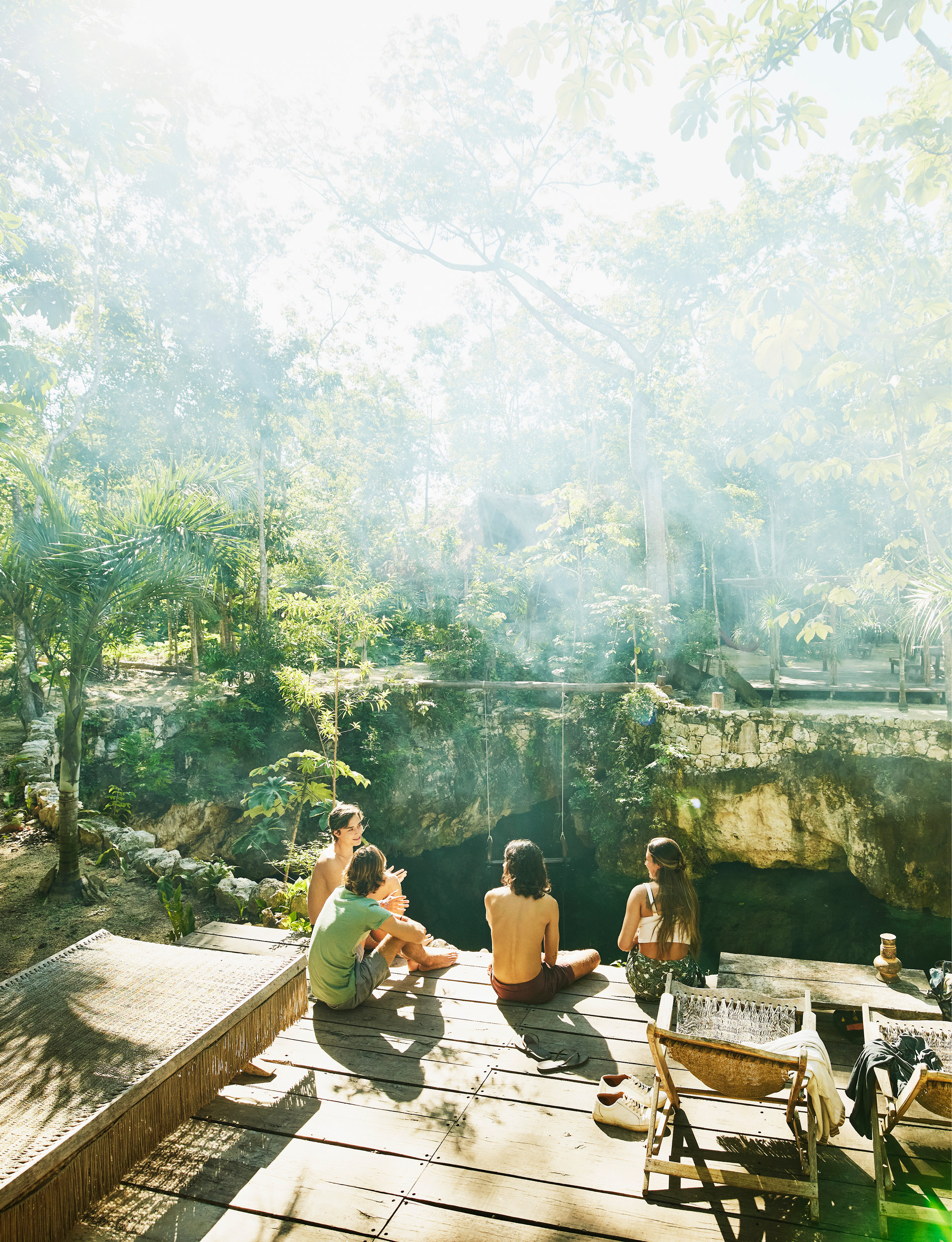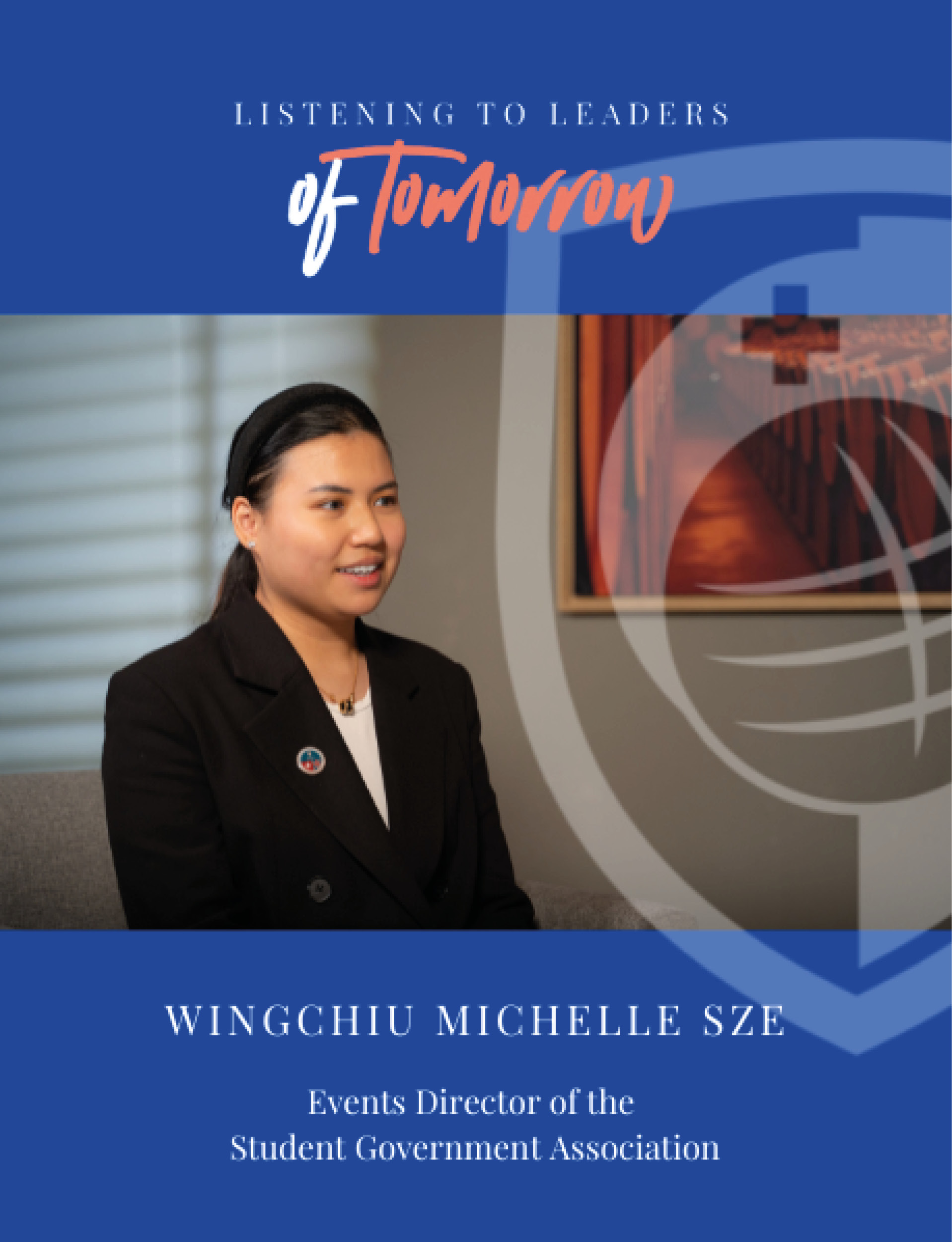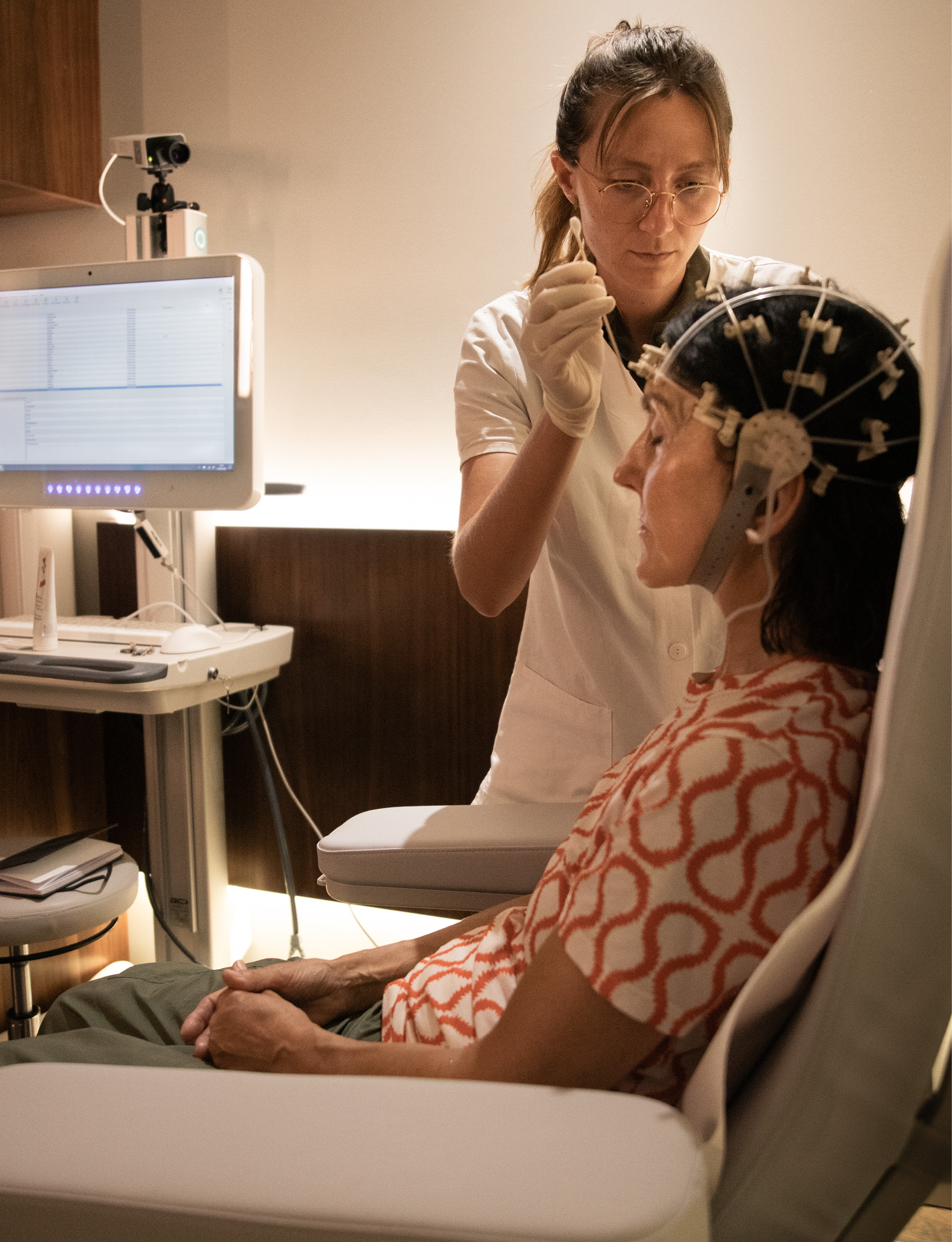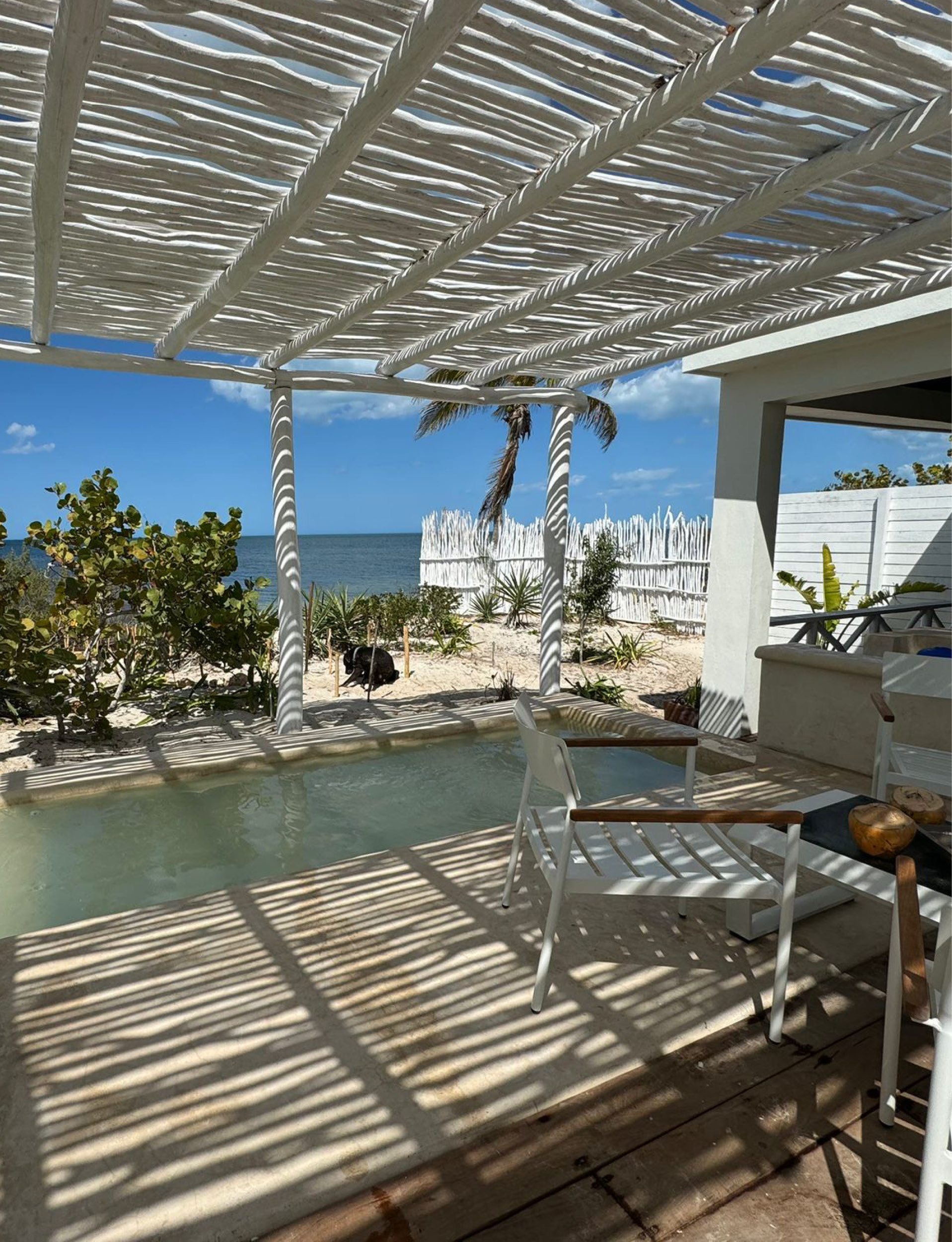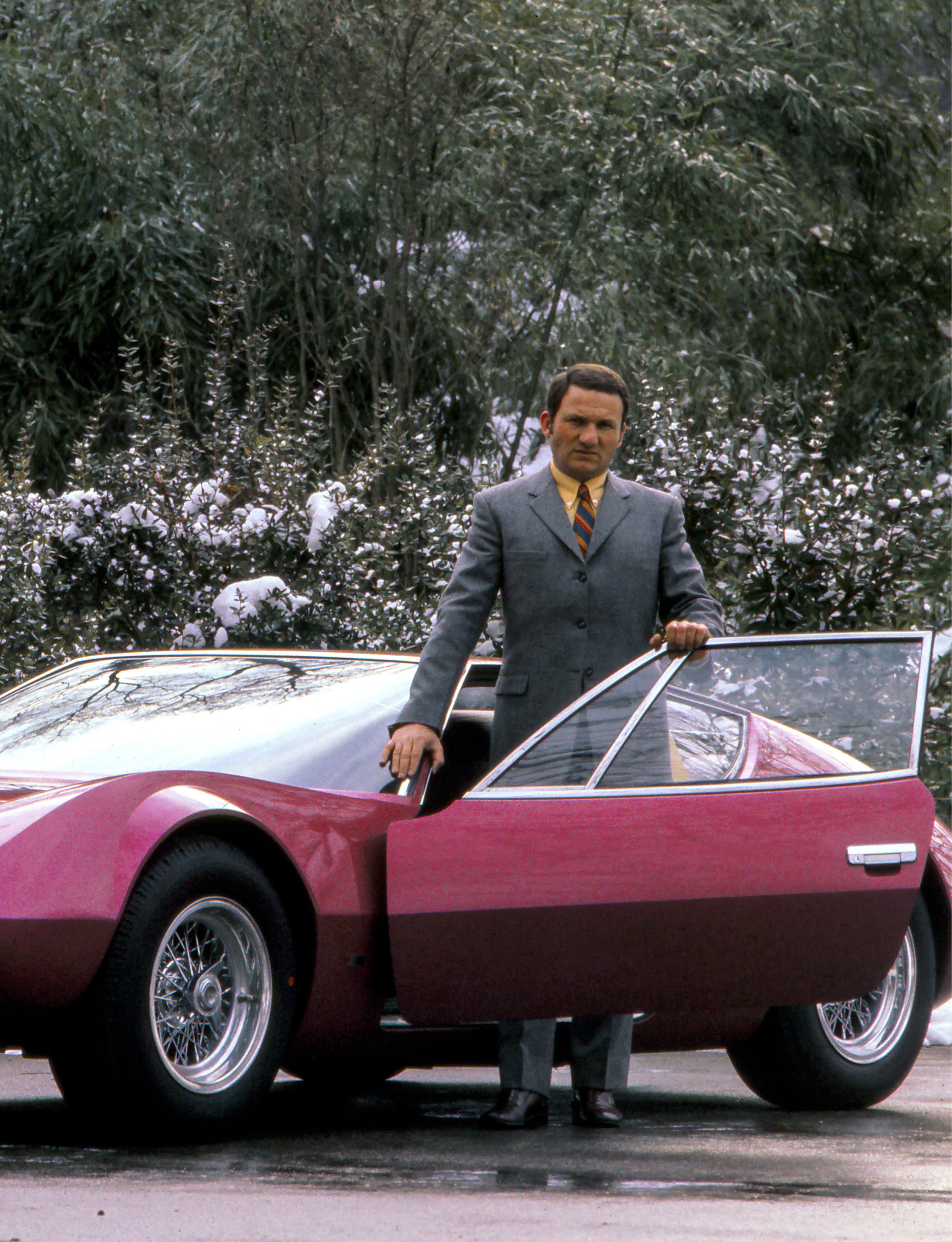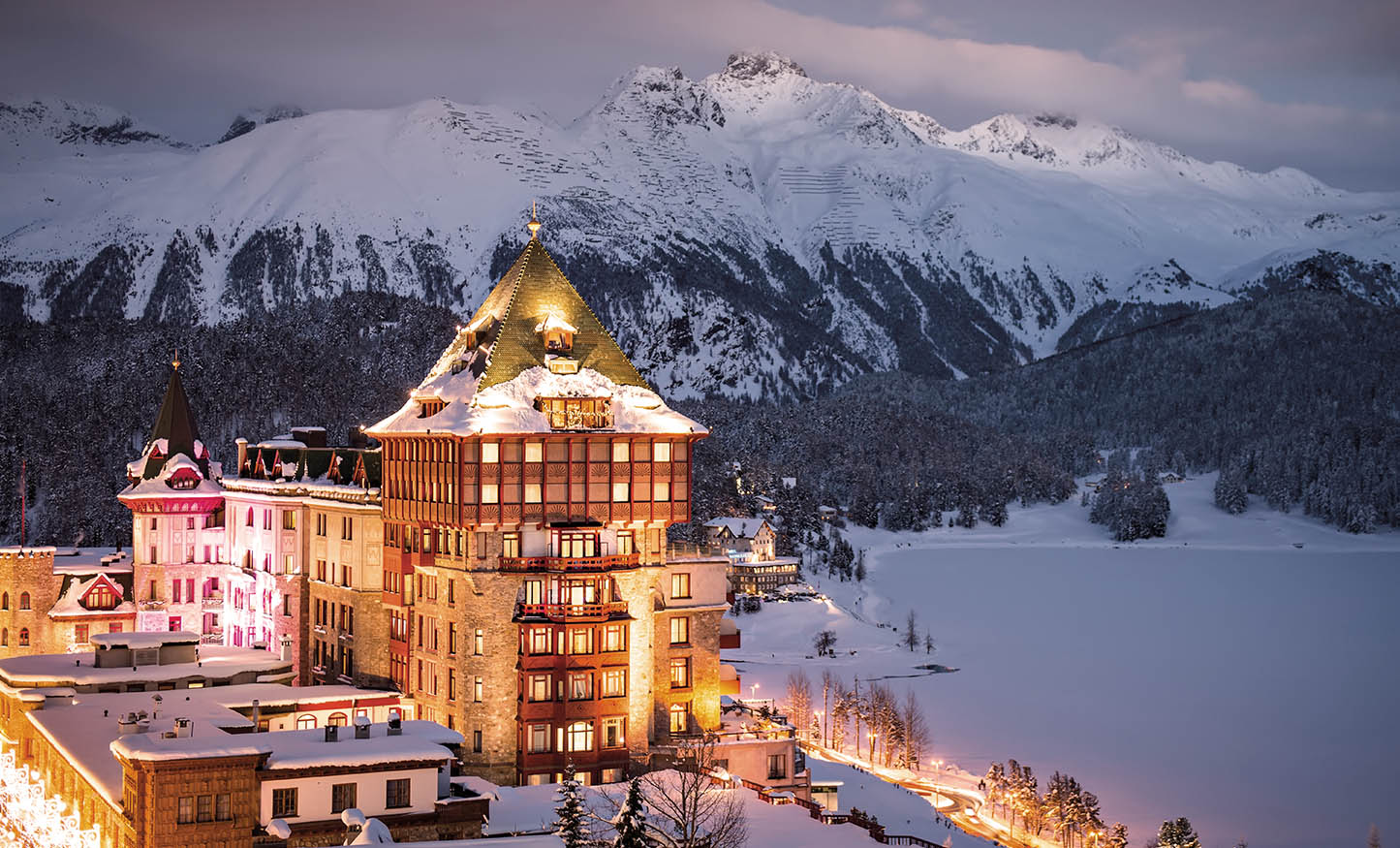
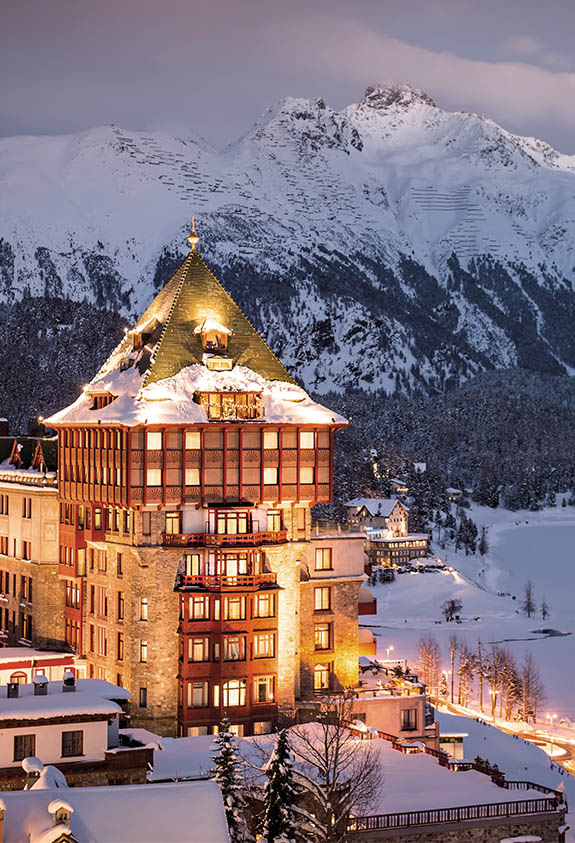

Frank Schuetzendorf, a member of Glion’s industry expert Master’s faculty, recently had the opportunity for an exclusive interview with Managing Director at Badrutt’s Palace Hotel, Richard Leuenberger. In a truly insightful conversation, they discussed differentiation, culture, technology, personalization and importance of the human factor in the ultra-high-end luxury hotel space. It’s a genuine must-read for all in the hospitality industry.
Frank Schuetzendorf (FS): To begin with, what differentiates your position as a Managing Director from a normal General Manager role within a hotel?
Richard Leuenberger (RL): I believe here it was more about the structure and the scope of that position. I started as a General Manager at Badrutt’s Palace, but as retail was added, there was the aspect of managing the relationships with the 33 tenants renting from us. That’s where the switch to Managing Director happened. Especially in the current context, where the retail industry is facing their own challenges, planning the future together with those companies, be it one of the big conglomerates or very small tenants, is very important.
Then, there is the residence project that we have across the street. It’s a big project that will connect our hotel to 18 new ultra-luxury residences that will be serviced by the hotel. Construction will begin next year.
(FS): What skill set does your position require, considering the current market context?
(RL): A keen sense of what’s around you, what your competitive environment is all about. You need to understand it very well, especially in a place like the Badrutt’s Palace. It’s important because we don’t compete locally, but internationally with hotels that operate in the same rate range. So, it’s about really understanding how our guests travel and the context around it. Then, and because we’re a family hotel, there’s no corporate marketing or sales division behind us, so we need to focus our resources quite precisely on where they make the most difference.
Operationally, having a very strong executive committee and being committed to your employees requires spending time understanding how the workforce is changing and making sure you get the best people. These aspects, and obviously my operational background, puts me very close to the operation and to our guests, which is very important, as that’s where you make the difference.
(FS): How does the Badrutt’s Palace in St. Moritz compare to your previous employers, which were all major ultra-luxury brands in the high-end hotel industry?
(RL): Here, I really learned what it means to work for a family company, and also that this hotel, from the very beginning in 1896 when it was opened, has very strong and simple defined values. For a long time, these were not written down until at one point they were, and they lived. Having this family spirit is something very special which I think that, when going back to a chain hotel, you will always miss.
(FS): Could you provide us with an example?
(RL): We’re in the special situation in that we work seasonally. We open and close the hotel twice a year, so out of the 540 employees we have in the winter, we only hire about 90 new staff each fall. Our people come back and many of them have been working here for 20 or 30 years. Each time it feels like we’re all going on a cruise ship together.
For our guests this means experiencing a low turnover, and such familiarity obviously helps a lot. Although you might say that familiarity breeds contempt, we don’t really have that here. Not only because we have great staff, but because you have that seasonality aspect and people are fresh. They’re here because they want to be here, and that’s a very exciting thing. Also, we have very strong family values, which have been alive here since the 1900’s. And, there are very simple things that somebody like Mr. Badrutt (founder of Badrutt’s Palace) would say, such as “no guest leaves the hotel unhappy”. It’s a very simple thing, but from somebody saying it to execution its hard work. But, if everybody truly believes it and they’re empowered to make decisions, then it works, and our guests feel it. Lastly, being a family company, you can also act very fast, so if something needs to be done you can make a quick decision and do it.
(FS): So, let’s compare the Badrutt’s Palace culture to other five-star hotel companies you have worked for such as Shangri-La and Ritz-Carlton
(RL): Shangri-La is also a family company and I was fortunate to work for, and very directly with, the Kwok family. Because they own the hotels, they also make decisions and directly manage their assets. They have a very keen sense of business, so when things don’t run well, they get very involved. Hotels being one of many businesses they own, there’s that asset side to it. So, sometimes as an operator, you can get a bit into a conflicting situation. You ask yourself what you’re going to do about an executive decision and how you can maintain the level of service you want, whilst still delivering a non-negotiable profitability to your owners.
(FS): What about Ritz-Carlton?
(RL): I believe, that in terms of culture, Ritz-Carlton is the only company, maybe including Four Seasons, that truly believe that culture makes the service experience. It starts with how the hotel is opened, and the involvement of key decision makers in the company. The way they make sure how they touch every employee, or “lady and gentlemen”, is unique. As a company they have an extremely strong culture and a very clear vision of the sense and place they want to create for the guest, and this is key.
The types of procedures they put in place for a chain are solid. Their level of commitment towards leadership and how they ensure that that vision is perpetually reiterated, enforced and lived every day, is extremely strong. It’s also reflected in how the morning meetings or briefings are conducted, following the principal ‘if you know that something is done well according to your culture, then talk about it. But if something is not done well, also talk about it’. So, the importance of ensuring that your employees can identify what is good behavior and what is bad behavior is enforced continuously, and I think Ritz-Carlton does that to the absolute maximum.
(FS): But times have changed…how has the merger with, first Marriott, then Starwood, impacted this culture at Ritz-Carlton?
(RL): On a corporate-level, we of course felt that the reporting structure was a Marriott reporting structure and that we were reporting into a brand portfolio. The most important thing for such a company is expansion, meaning opening new hotels and ensuring performance is maintained. So, it was a lot about numbers. In terms of how the hotels were run, the Ritz-Carlton culture was very strong. There were efficiencies between the different brands and systems in place, like yield management, communication platforms, PR companies that we would use and so on. But the brand vision and what the individual GM’s at the properties would do remained very much aligned with what the Ritz-Carlton brand values would stand for. I think becoming bigger and having more of other brands in the same portfolio, certainly made it more difficult to communicate to the guest what they’re going to get, for example when going to a certain hotel to know what the difference is between a Ritz-Carlton and a St Regis.
(FS): How would you define ultra-luxury in the hotel space today?
(RL): I think you need to have a very relevant product, and that the experience needs to be relevant to the customer that has the spending power. Everybody talks about the affluent traveler and everybody wants that affluent tribe to come to them. But when you look at a hotel like ours, which is 123 years in the making, and ask why somebody like that comes to our hotel, my answer is, it’s because of what they get. It’s the journey, it’s what they get in the hotel and it’s the interaction with our staff…it goes beyond just customizing the experience. It needs to be relevant to that person. So, I need to understand that what’s relevant to you, is not what’s relevant to somebody else that might have the same financial kind of status, but a different nationality and a different background. Understanding that, spending time gathering intelligence during pre-arrival, when guests are on property and post departure, that’s key. It’s making your product work for that kind of customer.
(FS): Keeping a 123-year old property up-to-date must be a challenging task. What approach do you take in deciding which areas to focus on and invest in to enhance the customer experience?
(RL): We obviously listen to our guests when they’re in house. But we also know what they are doing when they’re not staying with us. How they spent their lives, what’s important to them and what not and where they travel to when they’re not with us. What they get somewhere else is very important to understand, I believe. Especially when it comes to topics like technology and room layouts, where there’s no right answer. Many brands have extraordinary room products out there today, but they don’t necessarily fit to the kind of customers we have. So, we try to listen to what they want and like to focus on things that are very relevant. We’re currently renovating 70 rooms, so the process of what should be in those rooms, and what should not, comes down to relevance. We know, for example, that our guest’s requirement for data has increased exponentially. So, when we’re touching a room right now, we know that we need to be able to provide a stream of data which will be much higher than what people talk about today. The outcome is, that we decided to bring fibre into the room – not into the hotel, but into each individual room. Is that needed for every guest? It’s not. But it’s needed to give them the freedom of having it, right? The freedom of having the bandwidth to seamlessly run 10 devices, and of having the opportunity to call and say I need a secure network for my room. I can provide that, because I have that. Or streaming data through the television that works, and works fast, and that when you change a channel you don’t have to count to 3 for the channel to change and so on. So, it’s those things that we invest in as we understand the technology perspective rather than buying new iPads, because we don’t think this is important. Guests have their own devices. They know how to use them and they’re much better than what we could ever buy them.
(FS): What are some of the new market entrants you’re seeing and how you are positioning your product against these?
(RL): Whereas in a lot of other places you talk about Airbnb, you’ll find that in resort destinations you already have a very strong DNA of serviced departments. And we’re seeing new residence products coming onto the market here. These are gearing up their services as they now have spas, daily housekeeping services and so on. What we need to know is that from a price perspective, they’re competing differently. Our basic positioning has not changed. It’s always been a hotel that has a tradition and we need to recognize that and celebrate it. That’s something we have and it’s an asset, as it’s something that everybody wants to create. When you open up a new hotel you want to create a story about the hotel. We don’t need a story as we already have one, and our story is authentic. That strengthens our positioning, in addition to other things that are extremely relevant today. We’re not just a hotel with rooms and a restaurant. Our food and beverage offerings are big, because the hotel is a destination where you want to be at. We’re located city center with the bars, the live entertainment and that’s what people are looking for…it’s all part of the experience.
(FS): How important is your food and beverage offering to your hotel guests and how does this translate in the overall hotel performance?
(RL): When talking about strategy, we clearly talk a lot about food and beverage and how important that should be in the future. Although my food and beverage profitability is not very high, I know that without it, I wouldn’t be able to demand a certain room price. We’re not just a hotel destination but also a dining destination. That’s a key competitive advantage, as the desirability of the hotel is connected to that.
(FS): How has food and beverage evolved in your hotel?
(RL): When I look at the development of food and beverage, there are certain pillars. For example, we always had a nightclub, we’ve always had a bar, but there are other concepts that have evolved. You could argue that running a Japanese Peruvian restaurant with outside temperatures of -20 degrees Celsius might not work, but it does. It’s because people look for dining destinations as experiences they can go to. That such experiences are not just an afterthought but really authentic, is very important.
Where a lot of change has happened is how people eat their comfort meals. Be it breakfast or the usage of your room service. How people eat, not only where the food source is coming from, but also be it from philosophical or dietary perspective, so vegetarian, vegan or gluten free. These are trends that no longer apply to around 5% of our guests, we’re talking about 40% today. We know that being good at that, and being better than others in that, is critical. We spend a lot of time integrating those food trends into our regular menus so that our guests don’t feel awkward.
(FS): Which food and beverage service would you consider to be the most crucial for your operation?
(RL): Breakfast being extremely International as a meal, is the most relevant and key. It’s something I believe that is very underestimated in a lot of hotels. For us, breakfast is the meal where we touch every single guest. It provides us with a great opportunity to show what we’re capable of and adds a lot of value to the overall stay.
(FS): Speaking of stays, how do you create those valuable and memorable stays for your guests?
(RL): The difficulty is that we have guests coming here knowing exactly what they’re going to get. They come up and they know they’re going to get a Nobu restaurant, they know they’ll get a bar. So, how do you create something memorable, especially in this digital age with Instagram or Facebook? The picture alone is no longer enough. You have to create that environment where people also want to interact with each other. Be it at the bar or in the hall. Part of it is to see, to experience, to smell, to hear the music and to be in the special climate. But then also, when you’re here for a week, you want to be with people that are like you, and around you. And that’s what adds value to my proposition here as a hotel.
(FS): What’s your take on OTAs, considering their evolution over the past decade?
(RL): There’s always this element of how technology evolved and how OTA’s have given a certain transparency in a lot of what our guest’s daily lives evolve around. Our guests go online and check what a room costs. Be it for convenience or not having to speak to someone over the phone. We even have regular guests that go through that channel and book there, and we ask them why? They say it’s about the convenience of being able to cancel anytime. They could obviously also do that with us, but it’s our responsibility to show what the added value of booking directly with us is. We still have over 70% of direct bookings, which is very high, that’s because we also put the effort behind it to make sure that the conversion is happening and keeps happening. It’s not that difficult, but you need to obviously entice these people to make the decision. This means to provide that convenience an OTA can give you and having that feeling that, well, if I do go direct, although the technology aspect might be not as sexy as an OTA, it’s worth it.
(FS): What is it you do to stay in touch with your customers between two seasons to keep that direct booking rate high?
(RL): Part of it is being connected from a management level, like our resident managers, butlers, and our executive committee. Throughout the guest stay of five or six days, it’s about creating connections that we then have to maintain. Our sales and marketing efforts are also more personalized. For instance, I travel between seasons and go visit guests in their homes. That’s also our approach to creating events when traveling to major destinations. We host a cocktail party and encourage our guests to bring a friend. In that way, we get to know their immediate environment. Some people might argue that you’re not making the best use of your time, after all we are in 2019 and there are more efficient ways to maintain relationships, but let me tell you, it works better than ever. It’s because the level of trust is just so much higher already when we re-engage. In that way we see one of our main tasks being to establish that connection, that level of trust, with our first-time guests. I think we’re good at that, and it shows in those direct booking numbers.
(FS): How do you connect to the next generation of customers?
(RL): I think the food and beverage helps because you’re providing all these different environments, from classic dining to Nobu, the nightclub, the bar and so on. We’re quite on the pulse with that. We also see our summer business increasing, because we provide for an external environment: the temperature, cleanliness of air, nature and safety. All that has become more attractive again today. Sure, we attract more customers from the Middle East, but also more families from Europe that are escaping the summer heat. Providing these with the correct programming and the correct food choices are the things that we do. Just being able to take a summer stroll for 40 minutes, go make a fire or go swim in the lake, these are things our guests would have never cared about 20 years ago, but people want this today. And then you make sure that you provide that experience and give them the little extra attention which they won’t find at another destination.
(FS): In what way did social media effect Badrutt’s Palace?
(RL): It helped tremendously, because we understand how some of our guest circles connect, we were able to use social media to showcase our hotel. We see certain platforms that really help us do that.
The review aspect of it is one thing. It’s affected us and that can be managed by revisiting reviews. These are strategies that everyone has today, be it a chain or us. But then there’s the whole part that Instagram, Snapchat and Facebook does, where we really try to analyze very specifically how we’re doing and that’s super important. Never think you’ve understood what Instagram and Facebook are today because tomorrow it might be something completely different. And recognizing that, taking a step back to see what is actually happening on these channels, who your followers are and how you could interact with them, is something we are spending much more time on today. Understanding that and also dedicating budget to that is important. Therefore, going from print marketing to digital marketing and appointing resources to managing the channels, is what changed the most. And then suddenly, from one year to the next, you realize that you went from having up to 70% print marketing to 10%…within 12 months. Making that change, and deciding which are the right channels to invest in, is something that will be a big focus for us this year. Seeing what the quality of content is that we produce and how we use it, is key. So far, we have great guests that produce great content for us with lots of followers, and it helps spread the word.
(FS): You’ve recently outsourced the social media portion to an external agency. What was your reasoning for that?
(RL): You know, looking at what you do as a company and comparing yourself to yourself, is what we didn’t want any more. We looked at how good we were and at how many followers we had, then analyzed that information and thought, well that’s great, so let’s try something else tomorrow. That was our approach. But we felt we were missing out and that there was so much more. There are trends of how stories are being used, the kind of pictures you have, the filter discussion around what kind of filters should be used or not. Then, in which way all this would influence how our guests would perceive us. Keeping that in house just wasn’t good enough anymore.
(FS): And how is social media impacting your daily operation?
(RL): 10 years ago, I would not have thought about reading a TripAdvisor review. Today, it’s part of my morning briefing…not only to tell people how good or bad we were but also to reward people that did something so great that a guest wrote about it on TripAdvisor. It’s become part of our routine now, and so has social media.
(FS): Has technology also been able to have such an operational impact when it comes to recruiting talent?
(RL): What’s helped us most is actually not technological, but recruiting trips to hotels that have a counter season. In the winter season, I have 540 employees, in the summer, I have 250. During the summer we go to hotels that have the counter season, such as the five-star hotel hotels in Sardinia, Lake Como and some German and Greek hotels. We go there and recruit people, as, together with our partner hotels we can effectively offer a full-year employment. Staff will work in the Sardinia hotels for four months, and the rest of the time they work for us. Working closely with those hotels, and getting their buy-in, provides us with the great employees, and the likelihood of employees going back to the other properties is very high.
(FS): For the job seekers out there, can you describe what you would look for in a LinkedIn profile?
(RL): The quality of the company is probably more important than the quality of the job that you did. Similar to SEO, you should work on your keywords, meaning the right job titles and a good picture. All of these things actually do matter, because if somebody looks for an employee, they will look at the schools, for sure, but they will look for the first experiences, meaning the companies you worked for. Overall, it’s a great tool for getting visibility, but everything else thereafter is not the LinkedIn profile, it’s more what you can accomplish after.
(FS): How can students work on their employability after graduating?
(RL): I think it’s the importance of the people you work with and the company you work for which are key. That’s very crucial after graduating. It’s for your own good and not just for the CV. Entering a company that has the right values and the right culture that fits you is really important, as thereafter it will make you more successful in whatever you do next.
(FS): What advice would you provide to those seeking a career in the ultra-luxury market space?
(RL): I think reading about the hotel and about its culture has become much easier nowadays. It’s very visible. You can talk to people, write to them by connecting over LinkedIn and other different platforms. All that will tell you what it’s like to work for that company. But what I’m seeing more nowadays, is that a lot of people that come and apply here, and also in my previous company, have a very transactional kind of relationship. They think about: ‘what is it that I want from my life, and how do I acquire that skill? So, I’ll go out there and look for a company that can give me the job that allows me to acquire that skill. And then I move on and I acquire another skill. And that’s how I can become a complete being, or a complete professional’.
It’s not that the Millennial approach is wrong, but there’s just the importance of who you work for. I believe that there is a much broader approach, for example, if you learn the right behavior and work in the right culture, the learning will occur instinctively, and you will become a complete individual yourself.
I just think that there are too many companies out there that will sell to you that you can go anywhere when you work for such a big and great company. But in the end, you end up not getting what you want because you don’t like the people you work with, you don’t like the people you work for, and you don’t like what the company stands for. So, I think spending a little bit of time doing research is really important.
(FS): What’s something that Swiss hospitality schools, such as Glion, do extremely well?
(RL): At the end of the day, when you think about what you’ve learned in school, and then, what and how you’ll be learning every day in your work life, it’s more about your ability to translate knowledge to what’s relevant in your job today. And I think one thing that Swiss schools do very well, be it Glion or Les Roches, is finding a way of teaching people how to learn throughout their career. The practicalities that you find and learn there, be it working in the kitchen or doing all these other things, is driving the student’s curiosity. And if you learn that in your school time and keep doing it in your professional life, you’re ready no matter what happens, and it provides a certain level of self-confidence to go through a career and learn new things each time.
(FS): What’s your outlook for the future of the ultra-luxury hotel space?
(RL): Expansion of ultra-luxury level brands and others that can be identified in that space today. As they’re adding more properties and more sub-brands, they will eventually all lead to providing more of the same, homogeneous luxury experience. But the more they expand, the more they’ll expand themselves out of the ultra-luxury space. Just providing the hotel experience, be it at a St. Regis, a Ritz-Carlton, a Four Seasons or you name it, will reach a point where you still need to be able to differentiate as a brand within that space. And that becomes more difficult, because it’s all becoming more of the same.
There are some brands that are doing it better than others. For instance, I think we can all agree that when you look at how Rosewood developed over the last 3 to 5 years, they’ve understood just that. They’ve made considerable investments on curating experiences and giving more importance on design, art and similar aspects. That’s great differentiation, and they’re getting the share out of the market because they’re doing that. Aman is similar and so are other brands that have now decided to follow suit and perhaps go broader in 10 years’ time.
(FS): So where do the great opportunities for future graduates lie?
(RL): There’s a huge potential for somebody entering this career, because today most of those companies are travel companies, and no longer just hotel companies. Understanding the luxury space, working within such an environment and understanding what is relevant to that guest should help you in any ultra-luxury industry you might be venturing into afterwards.
(FS): How do you set yourself up for success?
(RL): We have more pre-arrival communication to enhance the arrival experience. When guests arrive, there is no check in at a desk. It doesn’t exist. I already knew three-four hours ahead of time that they were coming, so in the case where I organized the transfer, you would get your room key in the car, not at the hotel. Once arrived, you would then learn about the hotel as you go to your room.
We know if you were on a 14-hour flight or if you came by car from Zurich, and it completely changes the way we treat your arrival. Those things are important, as you need to be relevant at the right time. That takes more than technology. It takes technology on the backside, but not so much on the front side.
(FS): How do you manage to deliver on guest experiences and expectations?
(RL): The expectation is obviously very high at this hotel. But you could argue that 540 employees in season is a lot nowadays and perhaps question if that’s really needed. Could a lot of this not be solved with technology? For example, could guests not check themselves into the resort by using QR codes, bypass the check-in process and just walk up to their room? We ask ourselves where the experience should come in, and who can provide it. So, can the experience be created by the guest alone? Or can we provide it to the guest? Or should it be designed by doing it together with the guest? Of course, in this case, the guest could walk to his room alone, but we want to consciously not allow that, because as we escort the guest and make best use of their time, it’s what adds value and creates an experience.
Then we have key people in our team, like the concierge, that has all the technology he needs to give to guest exactly what they want and in the most efficient way. But again here, the interaction is what we still believe is the key.
Also, you’ll find people that usually don’t have time in their daily lives. They’ll spend two hours in the lobby and have tea, have conversations with certain people and enjoy the view. What we do with that time with the guests is key. When guests check out of this hotel, most of them will tell you about five or six people they interacted with. It’s how those people made sure that they had a great experience and how they made the best use of their time. So, I still like to define that part of the luxury experience is not about how fast things go, but about how efficiently we make use of our guest’s time. So now, if you want to speak to a concierge and he is held up by another person, then we need to make sure that the guest is not held up, in other words, we have another concierge. So, this is part of how we deliver on the guest experience.
We experiment with tools, where guests are connected to us through the technology they prefer using, like WeChat, WhatsApp, Facebook Messenger, or any other messaging or communication technology. We connect with them through their preferred platform and through their devices and not through our own app, and our PBX answers them instead of answering phone calls. This means that we don’t have a person less but the same amount of staff, responding at the same kind of pace they used to respond to when people were still using telephones.
(FS): Can you provide a best practice example of how your team goes the extra mile and makes a difference?
(RL): When people drive up to us in their cars and stay in of our suites, they would find their cars washed upon departure. But any hotel can do that and it’s what they usually do. But then, 15 minutes post departure, they would call me to ask me if we fueled their car, something we didn’t ask if they wanted or not, we just did it. This is maybe something you wouldn’t do at a chain hotel because the person that would do it doesn’t feel he has the authority to spend $100 on a tank filling, because that’s not what they do. And so, recognizing those opportunities make for lasting memories. So, somebody spending $20,000 a night makes the effort to call you because you wowed him by filling up his car.
(FS): What’s your approach towards handling complaints?
(RL): Like many companies, we have a good system for when things went wrong, how this is then efficiently communicated through the hotel so that people make decisions. We have very little issues with that, because a lot of management is involved in the day-to-day business. When something goes wrong, there are many opportunities to talk about it and to decide together who the right person is to then approach the guest, to be proactive about it and to not wait.
I can see more of this happening at this hotel than at any other property I worked at before. It’s because we have such a high number of regular guests, that familiarity of having a staff member here for maybe 20 years, that when something goes wrong, the staff have a real sense of responsibility to go fix it. They also know it’s not someone that came in today and is leaving tomorrow, but somebody that has been coming in for the past 20 years and that not fixing it has serious consequences.
So, it’s about instilling something as simple as “nobody leaves the hotel unhappy”, as Mr. Badrutt would say. Then, when a situation occurs where we have to fix something, it’s important as a management team to talk about it…this is what happened, and this is what was done. That way, other people on the team feel comfortable making decisions that are similar to that.
(FS): Can you describe how your operation embraces technology and technological advancements?
(RL): We believe, that making people install more on their phone just to interact with us is wrong. So, we need to find ways of using the technology they’re using without their help. Having a service that enables us to connect with the guest on all of these platforms, anything from Facebook, Messenger, WeChat, WhatsApp or a simple SMS, and to be extremely responsive, is what we’ve implemented. We chose a technology platform that allows us to do that. Our PBX team is handling this, and they’re being measured on how fast they respond to guests, so this also ensures our guest facing staff stay off their mobile devices.
When it comes to technology in the room, fibre, speed of data and TV technology was key because we still felt that this is something that will always be there, at least for the foreseeable future. We found that in most hotels you’ll find a very expensive TV, but a very cheap remote control made out of plastic, and they all look the same. As it’s something that you have in your hand and that you touch, we’ve decided that everything people touch will be of very high quality. So, our remote controls will have a brushed element to enhance that experience.
Of course, there are a lot of fancier things that we could do, but we try to focus on the basics and do them extremely well, because we see a lot of companies, even on our level of hospitality, not doing it well.
Next to our 5G setup we wanted to have a performing wireless network, which our guests consider to be a given. The infrastructure needs to be state-of-the-art, so no drops, but performing and extremely seamless. We did a study around wi-fi usage over peak season and noticed that for our 157 rooms, there would be as many as nine devices in one room activated at the same time, all using bandwidth, meaning anything from using Netflix to simple email exchanges. That’s when we decided to separate the infrastructure so that Wi-Fi remains exclusively for our guests and our staff don’t take away bandwidth and performance.
What you get is a TV performing at a level that when streaming Netflix, you don’t have the feeling that you need to go on your own device for better quality. We want the customer to realize that it’s probably better than streaming over their phones or laptops. So, these combined efforts are something that is extremely efficient, although not necessarily visible.
Another aspect where we do spend considerably more money, is everything to do with energy management and sustainability. For example, we have water exchange heating with the lake, where in the process, we reduce 30% of our oil consumption. We also work with solar energy for the pool heating and use thermal energy for our basic heating…so we spent quite a bit of effort and money on those technologies, because we also see the cost of that increasing exponentially in the near future.
(FS): When it comes to data and big data, how are you managing the vast amounts of information and where do you set your priorities?
(RL): We see a lot of potential in back of house data management and information we need to keep in house. We’ve taken the basic information that property management systems had about our guests and put them into a business intelligence tool. We spent quite a bit of time on how the amount of actual information can and should be accessed. Where previously the CRM systems were limited to processing a certain piece of information of what a guest represents, the business intelligence tool allows us to prepare the right information for the right person.
For instance, my Sales and Marketing Manager wanting to access information about demographics about a certain market is now using the same tool as our reservations agents that want to specifically know about you and about your guest preferences, like the way you like your coffee in the morning. Two years ago, such information was stored all over the place, so that our Nobu restaurant manager knew more about your soy sauce preference than what was written in your Opera or in your PMS.
So, the focus was to use a system that prepares the information exactly for the individual and internal organization that needs it. But we’re not on the level where the system would suggest what you should be doing or which market you should be working more or less on, because we’re only one hotel.
The second aspect is revenue management, where we spent internal and external resources to really give the revenue and the rate direction, and to keep control of that very tightly.
(FS): To conclude, in which way will the human factor in our industry always remain relevant?
(RL): I still believe that hiring the most qualified people in each aspect of your operation is key to differentiation. For our market, we have all the information, but the decision making and how data is used should remain with key people. For instance, we realized, that when looking into yield management systems like IDEAS or others, that all of them, whatever algorithm they use or have behind them, had a bias towards occupancy. So, no matter how you can figure them, no matter how much they learned historically from your hotel, they will always try to improve your RevPAR by having a bias towards occupancy.
That doesn’t work for us. It doesn’t work for the kind of property we have, it doesn’t work for the differences in geographical markets, for demographics and different seasons. There’s a historical logic why our guests pay a certain price for a room on December 27, but should there be a 6-day, 5-day or 7-day minimum stay?
At a certain point, our input about saying this is who we want to be, is what makes that decision good, and not the system. The skillset of our reservations department is the best example. Over Christmas and New Year’s, they don’t sell room categories, they sell rooms. They sell a specific room to a specific person, and they tell that person exactly what they’re going to get. The color of the carpets or the wooden floors, the type of television set, the layout of the bathroom etc. They sell that individual room, and in the process of doing that, add value to the guest experience. The result is, that we have some of our competitors coming to us and asking us how it’s possible that, during the same time, we can charge almost 700 euros more than they can, whilst being in the same hotel category and offering the same services.









